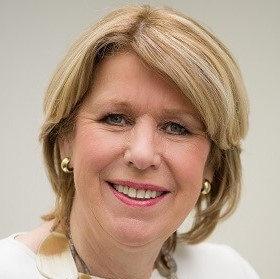Corien Wortmann-Kool: ‘Challenging Management to Achieve Sustainable Value Creation’

15-12-2021 | Author: Marike van Zanten
Corien Wortmann-Kool (1959) studied Nursing and Political Science. She was active in ladies fashion for almost ten years: Not the usual background for a top executive and non-executive director. Wortmann-Kool began her political career as a Municipal Councillor in Zeist (CDA). She worked for the Dutch Ministry of Infrastructure and Water Management for eight years, latterly as Deputy Director of Transport and Infrastructure. She was a member of the European Parliament from 2004 to 2014 and remains Vice President of the European People’s Party until 2018. After Brussels, Wortmann-Kool became a career non-executive director with supervisory roles at the Kadaster (until this year) and Aegon. She became Chair of the Board of ABP pension fund in 2015. In addition, Wortmann-Kool is Chair of the Supervisory Board of Save the Children Nederland and a jury member of Prix Veuve Cliquot.
ESG: Setting The Bar Higher Step By Step
The ESG theme is currently high on the Dutch supervisory agenda. We asked Wortmann-Kool what that means for the role of non-exec board members: ‘Stakeholders increasingly expect companies to focus on sustainable value creation in the (mid) to long term. That goes far further than a vision of sustainability or an “ad hoc” objective of CO2 reduction. I think NEDs have an important responsibility in this, because it concerns a company's strategy; Considering how products and services contribute to sustainable value creation for clients, employees, shareholders and society at large, translating this into measurable goals and reporting on this in the annual report.’
Reporting: Accountability To Stakeholders
‘Reporting guidelines can help with that and also make it easier to compare companies. That is a work in progress and Europe is leading the way. I think it is important for guidelines to be sufficiently flexible so they can be implemented in a company-specific way. Harmonization via the International Sustainability Standards Board (ISSB) could be an important next step. I fully understand this will be a challenge for many companies. It is important not to view it primarily as a compliance theme, but an essential step for transparent accountability to stakeholders in respect of value creation. Demonstrating how corporate activities not only contribute to profit, but to people and planet too: People planet profit.’
Fundamental Transition
‘If we want to save the climate, fundamental transitions in the economy, society and businesses will be necessary in the coming decades. That goes far beyond just energy transition. Issues such as climate neutral production, preservation of biodiversity and raw materials, circular construction and technological innovations play a role in that. We non-executive directors can challenge management to walk the talk, to embed sustainability in the heart of strategy and to really connect with core activities and the investment agenda. Take the first step and then see where the bar can be set higher step by step.’
This article was last changed on 15-12-2021
